
10 Most Religious Countries In The World
Religion is a powerful force that has shaped societies and influenced the lives of people for centuries. This article will explore the findings of a comprehensive survey conducted by CEOWORLD magazine and the Global Business Policy Institute, which sought to gauge the religiosity of 148 countries. By analyzing the responses of over 370,000 global citizens, this research offers a unique perspective on how religion influences cultural, social, and political systems around the world.
Tenth Place - Djibouti (Religious Score: 98.2)
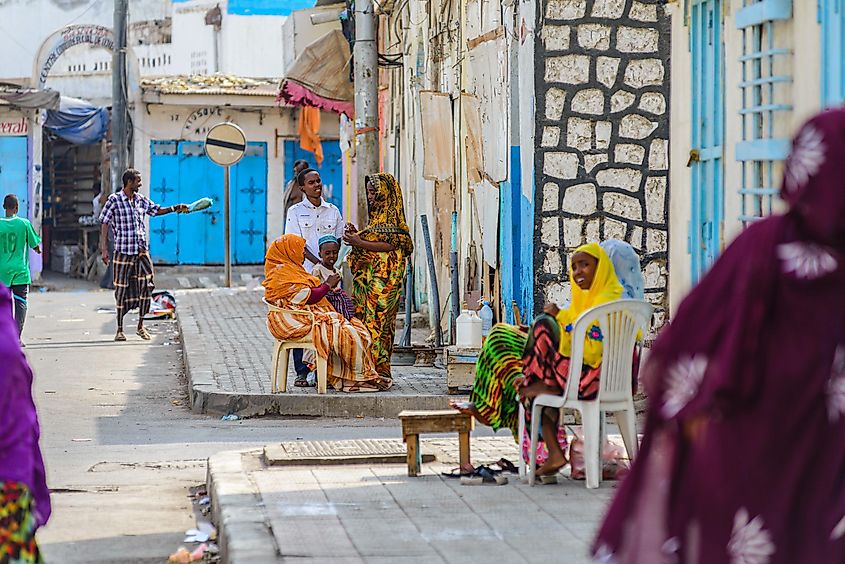
Djibouti is a country located in the Horn of Africa on the Red Sea. Islam has played a central role in the country's identity for centuries, with the majority of its population adhering to Sunni Islam. The origins of Islam in Djibouti can be traced back to the 7th century when Arab traders and settlers introduced the religion to the region.
But what has contributed to the enduring prevalence of Islam in Djibouti? One factor is the country's strategic location as a crossroads for trade and cultural exchange between Africa and the Middle East. This has allowed Islam to spread and take root in the region. Additionally, Djibouti has a long tradition of Islamic education and many mosques scattered throughout the country, helping to preserve and transmit the Islamic tradition.
Ninth Place - Mauritania (Religious Score: 98.5)
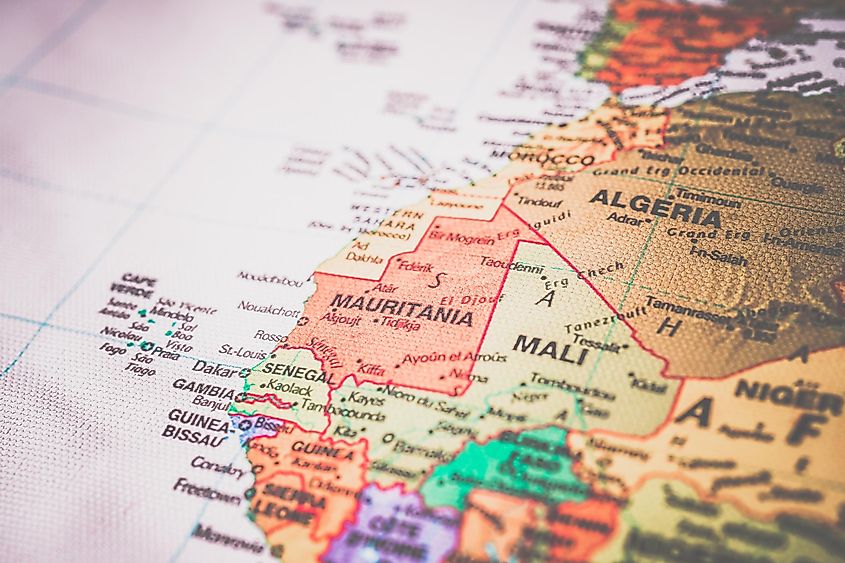
Mauritania is located in North Africa. This country has about 4 million people living within its borders, and the majority of Mauritania's population practices Islam. Although the country isn't particularly diverse when it comes to religion, it more than makes up for it with its linguistic diversity. Arabic is the official language of Mauritania, but many residents also speak French, as well as local languages like Soninke, Pulaar, and Wolof. So not only is Mauritania a deeply religious place, but it's also a melting pot of cultures and languages. Islam has been a major force in Mauritania for centuries, and there's a good reason for that! For starters, Mauritania's strategic location on the west coast of Africa makes it a prime spot for trade and cultural exchange with the Middle East.
Eighth Place - Sri Lanka (Religious Score: 98.6)
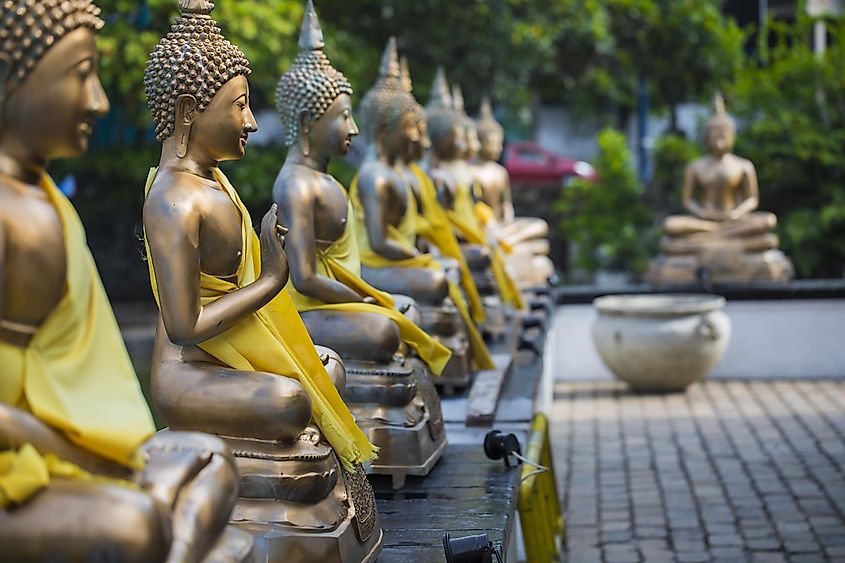
Sri Lanka has a long and diverse history of religion. The island has been home to a variety of religious traditions and practices for centuries, with influences from Hinduism, Buddhism, Islam, and Christianity. Buddhism was introduced to Sri Lanka in the 3rd century B.C. by the missionary monk Mahinda, who was sent by the Indian Emperor Ashoka to spread Buddhism to the island. The Buddhist tradition took root in Sri Lanka and became the dominant religion, with the construction of numerous temples and monasteries throughout the island.
Hinduism also has a long history in Sri Lanka, with the island being home to many Hindu temples and shrines. Islam was introduced to the island in the 7th century, and Christianity got its start in Sri Lanka from European colonizers in the 16th century. Sri Lanka's religious diversity reflects the complex and varied history of the island.
Seventh Place - Indonesia (Religious Score: 98.7)
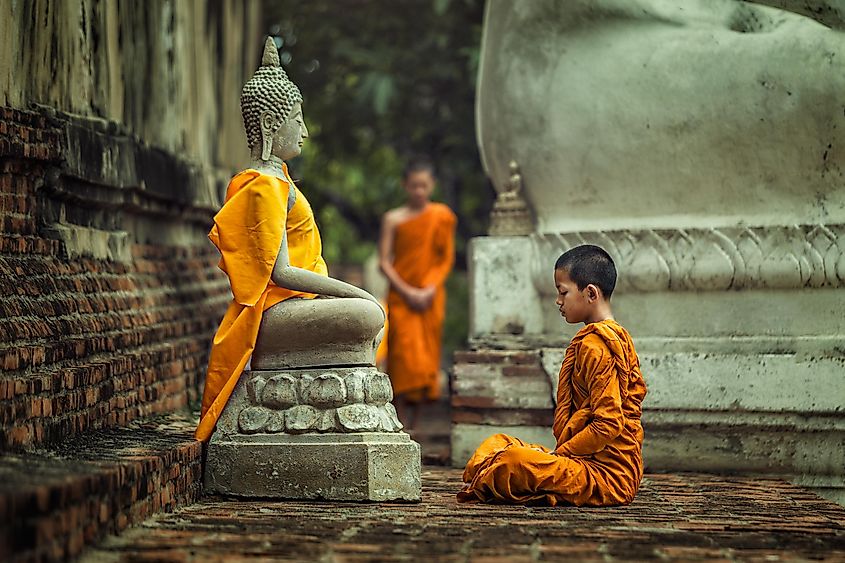
Indonesia is a land with a rich spiritual history, with Hinduism, Buddhism, Islam, and Christianity all leaving their mark on the country. Way back in the 1st and 2nd centuries A.D., Hinduism and Buddhism made their way to Indonesia through the travels of traders from India and China. These religions became popular among the elite and spread throughout the islands.
Islam arrived in Indonesia in the 13th century, largely thanks to the influence of Muslim traders from the Middle East. It gradually gained a foothold throughout the country, eventually becoming the dominant religion in many parts of Indonesia. The Europeans also made their mark on Indonesia's religious landscape, introducing Christianity to the country in the 16th century. Today, Indonesia is home to a vibrant mix of spiritual traditions, with the majority of the population identifying as Muslim, followed by Hindu, Buddhist, and Christian.
Sixth Place - Malawi (Religious Score 99)

Malawi is a land with a multifaceted spiritual heritage, with traditional African religions, Christianity, and Islam all playing a role in shaping the country's culture and history. For centuries, Malawi has been home to a vibrant mix of traditional African religions, with many people continuing to follow these practices alongside other faiths. Christianity was brought to the country by European missionaries in the 19th century, and it has since become the dominant religion in Malawi, with the majority of the population identifying as Christian. Islam also has a long history in Malawi, with the first Muslim traders arriving on the East African coast as far back as the 15th century. While Islam remains a minority religion in the country, it has had a significant impact on Malawi's culture and history.
Fifth Place - Yemen (Religious Score of 99.1)
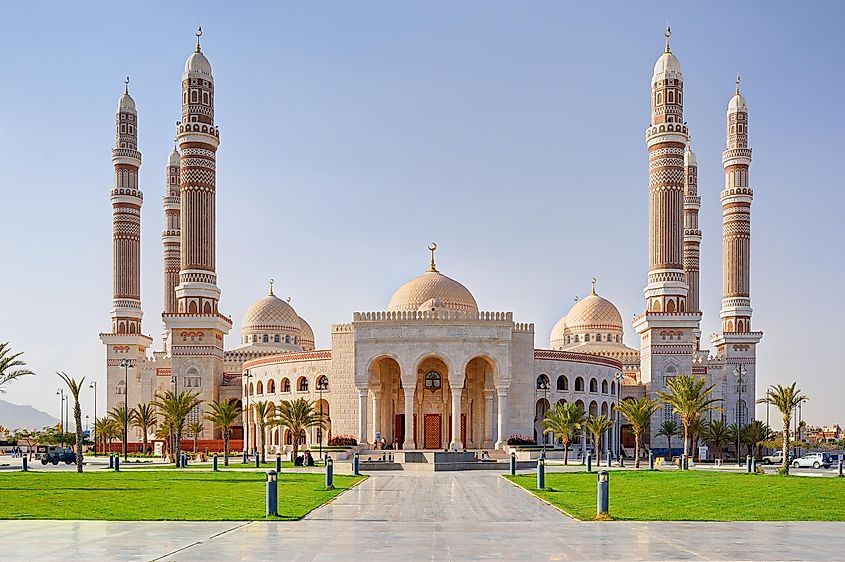
Yemen is a land with a fascinating spiritual history, with influences from Judaism, Christianity, and Islam. Islam has played a significant role in Yemen since the 7th century A.D., when the Prophet Muhammad sent his son-in-law to be governor of Yemen. From there, Islam spread rapidly throughout the Arabian Peninsula, and Yemen became an important center of learning and scholarship for the Muslim world.
Judaism also has deep roots in Yemen, with the first Jewish communities believed to have arrived in the region all the way back in the 3rd century. Christianity arrived in Yemen in the 6th century, but it has remained a minority religion in the country. However, today Yemen is mostly a Muslim country.
Fourth Place - Ethiopia (Religious Score: 99.3)
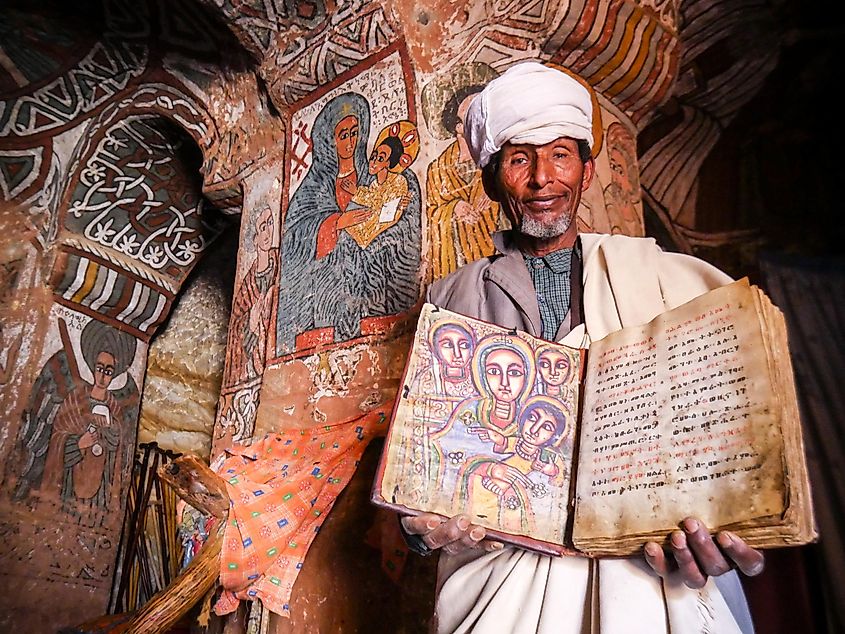
Ethiopia is an African nation that identifies as Christian. According to Ethiopian tradition, the introduction of Christianity to the Aksum Empire occurred in the 4th century A.D. when a Greek-speaking missionary named Frumentius converted King Ezana. This marked the beginning of a long history of Christianity in Ethiopia, with the religion becoming an integral part of the country's cultural and spiritual identity. Frumentius is now revered as a saint in the Ethiopian Orthodox Church, which has played a significant role in preserving and promoting the Christian faith in the country for centuries. Islam also has a long history in Ethiopia, with the first Muslim communities believed to have arrived in the region as far back as the 7th century. While Islam remains a minority religion in Ethiopia, it has had a significant impact on the country's culture and history.
Third Place - Bangladesh (Religious Score: 99.5)
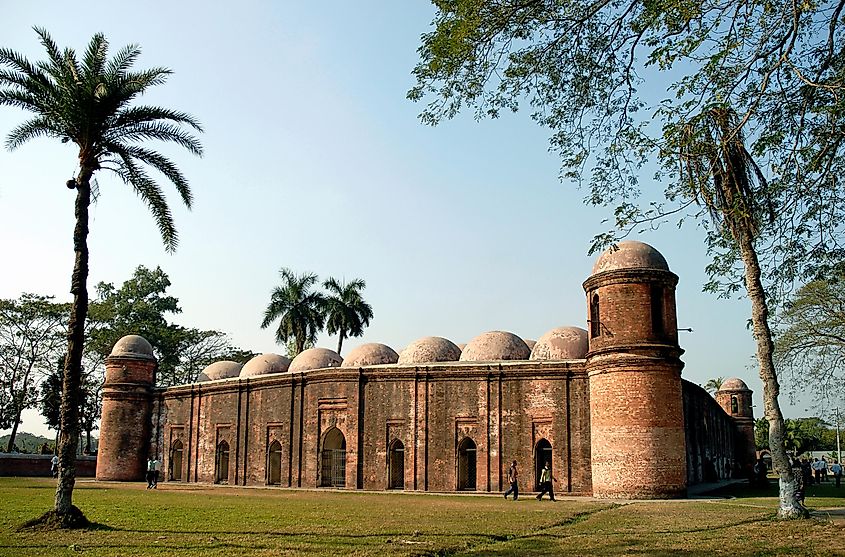
Bangladesh is a land with a long and varied spiritual history, with Hinduism, Buddhism, Islam, and Christianity all leaving their mark on the country. Buddism and Hinduism arrived in the 3rd century, brought by traders from India and China. They quickly gained popularity among the ruling classes and spread throughout the land with the construction of stunning temples and monasteries. These religious traditions have played a significant role in shaping the cultural and spiritual identity of Bangladesh and continue to influence the country to this day.
Islam made its way to Bangladesh in the 6th century with the arrival of Muslim traders from the Middle East. It gradually gained a foothold throughout the region, eventually becoming the dominant religion in Bangladesh. The Europeans also left their mark on Bangladesh's religious landscape, introducing Christianity to the country in the 16th century. Today, the majority of Bangladesh's population identifies as Muslim, with a small minority following Hinduism, Buddhism, and Christianity.
Second Place - Niger (Religious Score: 99.7)
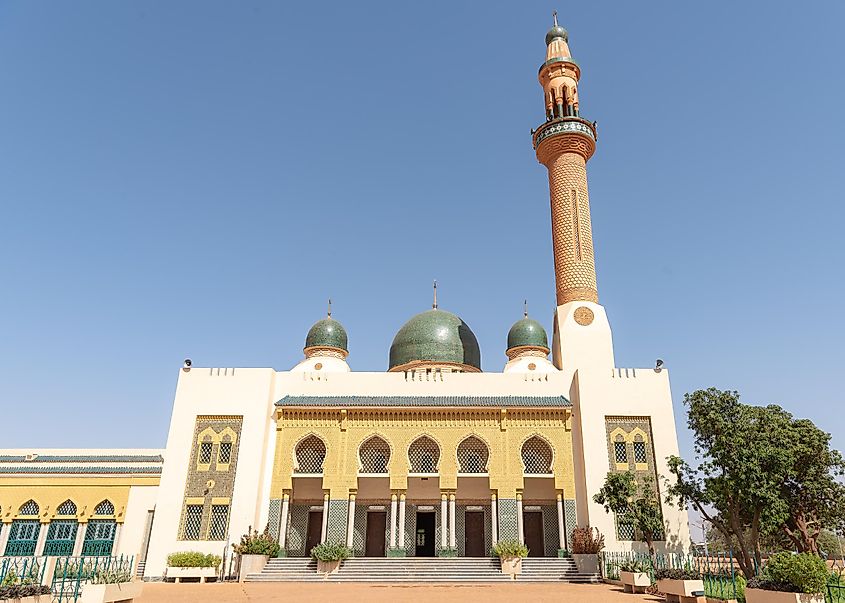
In terms of culture and society, Niger is a predominantly Muslim country, with the majority of its population adhering to Sunni Islam. The origins of Islam in Niger can be traced back to the 15th century when the religion was introduced to the region through the spread of the Songhai Empire. Islam spread rapidly throughout Niger, eventually becoming the dominant religion in the country. However, the country is also home to a diverse mix of ethnic groups, each with unique customs and traditions. The official language of Niger is French, but there are also a number of local languages spoken throughout the country.
First Place - Somalia (Religious Score: 99.8)
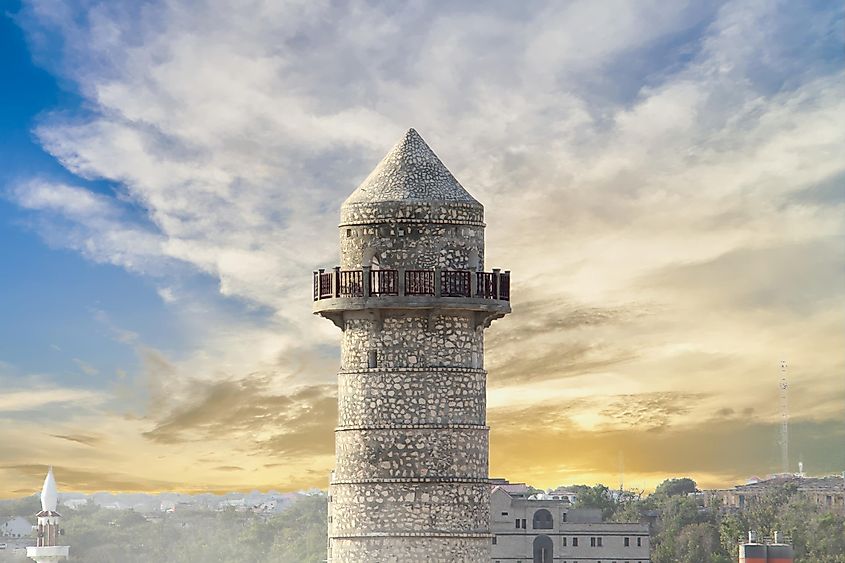
Somalia is a land with an epic spiritual backstory, with traditional African religions, Islam, and Christianity, all leaving their mark on the country. Islam has played a significant role in Somalia since the 7th century, in fact, Somalia was one of the first places to embrace Islam. Islam spread rapidly throughout the Arabian Peninsula, and Somalia became an important center of learning for the Muslim world. Traditional African religions also have deep roots in Somalia, with many people continuing to practice these traditions alongside Islam. Christianity arrived in Somalia in the 12th century, but it has remained a minority religion in the country.
Conclusion
Religion is an incredibly powerful force that has shaped the lives and cultures of people all around the world. In these ten countries, religion is deeply ingrained in their history and way of life, with a diverse mix of faiths and practices coexisting alongside one another. Despite the forces of globalization that have worked to erase cultural differences, these countries have retained a strong sense of religious identity, showing that religion is still a powerful force that has a profound influence on people and societies worldwide.











